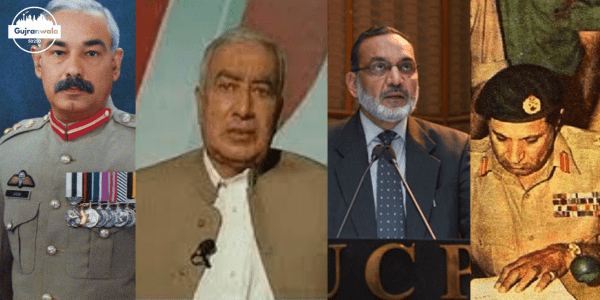The military is the most important to any country’s security. It plays a important role in both domestic and international safety. They positioned at borders to protect against external threats. If we talk about the importance of military so without a strong military, a nation’s security would be compromised. Here, we discuss a list of military persons from Gujranwala.
In Pakistan, the military has importance role beyond only its border security role. It actively helped the country during disasters. They accommodate the country during natural calamities such as floods and earthquakes. They provides the basic supplies and support to affected populations during disasters.
Nassar Ikram
He was a two star Admiral retired officer and a flag officer from the Pakistan Navy. His last appointment was as Pro-Rector, Research Innovation and Commercialization at NUST university. He is currently serving on the position of Vice Chancellor of Iqra University Islamabad.
Nassar was born on 7 February 1963 in the Gujranwala. He studied Electrical Engineering from Pakistan Navy Engineering College in 1985. He has been the part of various well – known institutes. Nassar has been alma mater of Pakistan Naval Academy PNEC , Royal Naval Engineering College , Cranfield University , Bradford University and National Defence University.
Military Career
In 1979 he joined the Pakistani Navy . He won the sword of Honor and also commissioned Weapon Engineering branch in December 1983.In 1989, he did Weapon Engineering Application Course from Royal Naval Engineering College UK. He did his Masters in Electronics Systems Engineering from Cranfield University UK in 1995.
Nassar graduated in National Security and War Studies from National Defence University, Islamabad . He also complete his Master’s degree in National Security & War Studies from Quaid-e-Azam University. In 1999 he did his Doctorate Degree in Cryptography from Bradford University UK.
He served on various onboards including PNS Tughril, PNS Dacca, PNS Shamsher and PNS Munsif as Deputy Weapon Engineering Officer. Nassar also assisted at PN Dockyard. At PNS Bahadur, he became an an instructor at Electronic Warfare Training Centre.
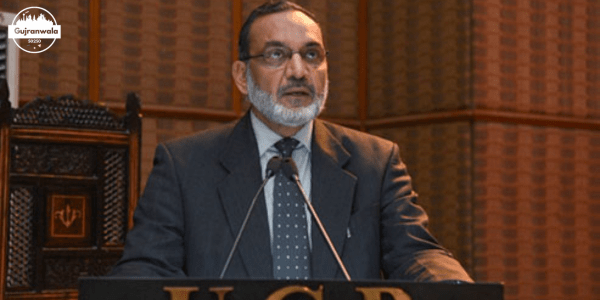
He hold the various major offices includes Deputy Director General Inter-Services Intelligence, Deputy Chief of Naval Staff at Naval Headquarters (NHQ), Assistant Chief of the Naval Staff at Naval Headquarters (NHQ) and Commandant Pakistan Navy Engineering College.
At NUST university he served as Pro-Rector, Research Innovation and Commercialization. His most important role is in the establishment of Pakistan’s first Science and Technology Park the National Science and Technology Park (NSTP). He also became NSTP’s founding Vice-President. It is the major name in List of Military Persons From Gujranwala.
Military service Analytics
| Commands | Battles/Wars |
|---|---|
| Deputy Director General | Kargil War |
| Inter-Services Intelligence | Operation Parakaram |
| Deputy Chief of the Naval Staff | 2008 Indo-Pakistan standoff |
| Assistant Chief of the Naval Staff (C4I) | War in North West-Pakistan |
| Commandant Pakistan Navy Engineering College | 2015 India-Pakistan border skirmishes |
| 2016 India-Pakistan Standoff | |
| 2019 India–Pakistan standoff |
Career Analytics
| Designations | Location | Years |
|---|---|---|
| Vice-Chancellor | Iqra University | September 2023 till now |
| Vice-Chancellor | University of Central Punjab | April 2021 – September 2023 |
| Vice President | NSTP | December 2019 – April 2021 |
| Pro Rector | NUST | April 2017 – April 2021 |
| Commandant | Pakistan Navy Engineering College | July 2015 – April 2017 |
Awards
| Sword of Honour | Surface Warfare Officer Pin |
| Command at Sea insignia | Hilal-e-Imtiaz (Crescent of Excellence) |
| Sitara-e-Imtiaz (Star of Excellence) | Tamgha-e-Jamhuria |
| Tamgha-e-Baqa | Medal of Service (Military) |
| Tamgha-e-Diffa | 10 Years Service Medal |
| 20 Years Service Medal | 30 Years Service Medal |
| 35 Years Service Medal | Hijri Tamgha |
| Qarardad-e-Pakistan Tamgha | Jamhuriat Tamgha |
| Tamgha-e-Salgirah Pakistan |
Ahsan Malik
List of Military Persons From Gujranwala includes the Ahsan Malik. He was Born 3 November 1948 in Gujranwala. Ahsan Malik is a retired Pakistan Army officer. He defended Kamalpur in the Indo-Pakistani War of 1971. He held the rank of Captain at Baloch Regiment at the time, serving in the 31st Battalion.
Army Career
His most important role was in Defence of Kamalpur. It was the battle fought at Kamalpur near the border at the Indo-Pakistani War of 1971 and Bangladesh Liberation War. The Defence of Kamalpur was commissioned by Captain Ahsan Malik and his 140 men. There are seventy soldiers of 31 Baloch and the same number of para-military troops who all bravely fought against enemies.
Attacks against Pakistani border started in July by Mukti Bahini. The Mukti Bahini were the Bangladesh liberation army which consists of Bangla-speaking foot soldiers supported by discriminated Bangla-speaking Pakistani soldiers.
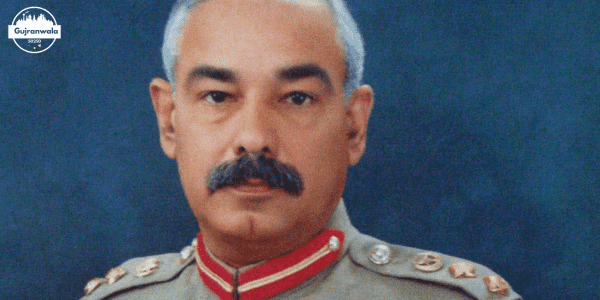
On 22 October and 14 November, they started more attacks on a kilometer from the border kamalpur. They supported by the Indian Army’s 13th Battalion Brigade of the Guards. Malik who was captain at that time was cut off and his CO, Lt. Col. Sultan Ahmed tried to extract him and also reassert control of two other outposts. They tried to reassert the Naqshi and Baromari without success.
Major Ayub of 31 Baloch attempted to resupply Malik’s tiny garrison but failed on 29 November. By using Mukti Bahini Kler also tried to take Kamalpur on the run but failed. According to General Sukhwant Singh, Kler then decided to lay siege to Kamalpur and break down its will to resist.
He decided to starve out the garrison by a prolonged siege because of casualties, successive failures and demoralization among the attacking troops. Pakistani Captain Singh knew that there was no Pakistani artillery in this sector, only two troops of mortars. But along with it he knew that Kler was further handicapped that one of his battalions had just been reorganized from a unit raised initially for counterinsurgency with no support elements.
Result of Defence of Kamalpur
With few casualties the battalion reached its objective. Kler withdraw his troops from the close siege and he also hammered the post with seven sorties of MiG-21s firing rockets and cannon. Malik surrender himself when he received the order by radio at 19:00 that day. He was awarded with a Sitara-e-Jurrat, when he returned to Pakistan.
Awards
| Sitara-e-Jurat | Sitara-e-Imtiaz(Military) |
| Sitara-e-Harb 1971 War | Tamgha-e-Jang 1971 War |
| 10 Years Service Medal | 20 Years Service Medal |
| 30 Years Service Medal | Tamgha-e-Sad Saala Jashan-e-Wiladat-e-Quaid-e-Azam |
| Hijri Tamgha | Jamhuriat Tamgha |
| Qarardad-e-Pakistan Tamgha |
Imtiaz Ahmed
Brigadier Imtiaz Ahmed is also famous as Imtiaz Billa. In the Pakistan Army Corps of Engineers he is a retired engineering officer. He is also a former spy, who served as the Director-General of the Intelligence Bureau from 1990 to 1993.
Imtiaz was born on 4 June 1935 in Gujranwala. He belongs to a Kashmiri clan. He joined the Pakistan Army and entered the Pakistan Military Academy in Kakul after his matriculation. Ahmed appear at the Military College of Engineering in Risalpur.
He completed his Bachelor of Science (B.S.) in civil engineering. He earned a commission as a Second lieutenant in the Pakistan Army Corps of Engineers in 1960. Imtiaz was famous name in List of Military Persons From Gujranwala.
Army Career
As a Lieutenant-Colonel, he joined the Joint Counterintelligence Bureau in 1980. He works in the counterintelligence management and overseeing anti-communist operations in Sindh. After the 1981 Pakistan International Airlines hijacking, he began to investigate the militant Al-Zulfiqar group. He also spread his spy on the leaders of the MRD led by Benazir Bhutto in 1982–85.
He also monitored the anti-communist judicial probe from 1983 to 1988. The Communist Party of Pakistan politicians answered accusations of Ahmed’s CI Bureau in Sindh of wrongfully investigating communist Nazeer Abbasi’s political ambitions.
Col. Ahmed was appointed as the Director-General of the Intelligence Bureau in 1986–87. When Lieutenant-General (Lt-Gen.) Akhtar Abdur Rahman became DG ISI , he took over the directorship of the JCIB in Islamabad.
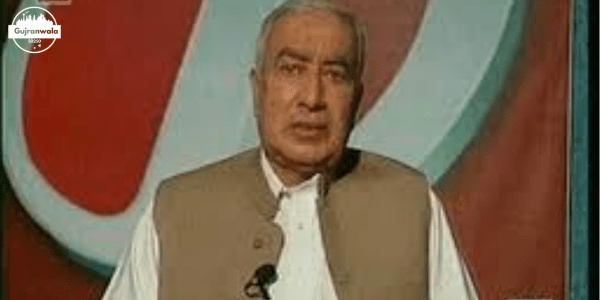
He was appointed as director of the Political Wing of the ISI in Islamabad in 1988. He manages the country’s internal security and tried uniting the Pakistan National Alliance. Because of complaints of Naseerullah Babar who was Security Adviser at the Interior Ministry, Imtiaz was rotated back to the Corps of Engineers.
Ahmed in a secret conversation with Major Amir Khan, talked on bring about a vote of no confidence movement to remove Prime Minister Benazir Bhutto. He wanted to bring the Pakistan Muslim League (PMLN) led by its then-President Fida Mohammad Khan and his chief secretary Nawaz Sharif.
But the conversation was apparently videotaped and was released to the public. So both Imtiaz and Major Amir Khan were discharged from their military commissions in 1989.He was appointed as Chief Secretary in the Government of Punjab, which he served as until 1990 by Chief Minister of Punjab Nawaz Sharif.
Nawaz Sharif formed his first ministry in 1990 and re-appointed Ahmed as the DG of Intelligence Bureau.After resignations of Prime Minister Sharif,he also resigned from the directorship of the Intelligence Bureau.
Army service Analytics
| Commands | Battles/Wars |
|---|---|
| DG Intelligence Bureau | Indo-Pakistani War of 1965 |
| Director JCIB | Indo-Pakistani War of 1971 |
| Operation Midnight Jackal | |
| Operation Clean-up |
Awards
| Tamgha-e-Imtiaz | Sitara-e-Basalat |
Zafar Masud
Muhammad Zafar Masud also famous as Mitty Masud was a Air Commodore. He was a one star air officer in the Pakistan Air Force and a military strategist. His responsibility was defending the airspace border of East Pakistan.
He was born on 17 October 1927 in Gujranwala. His father was Zafar Hussain who served as a civil officer in the Indian Railways. Zafar graduated from Model High School and was commissioned into the Royal Indian Air Force (RIAF) to become a fighter pilot in 1946.
Air Commodore Career
In 1946 after the partition of India, he joined the newly created Pakistan Air Force. He joined the faculty of Air Force Academy in Risalpur in 1948. After completed a Fighter Leader Course at the RAF, he qualified as a fighter pilot in 1952.
He emerged as the top hero of the 1965 war after his first command assignment as base commander Sargodha Air Force Base as Group Captain. Zafar actively participated in second war with India and led a team of fighter pilots. He flew against the Indian Air Force in Sargodha Sector with great courage and regarded his ability in dogfight against the Indian pilots.
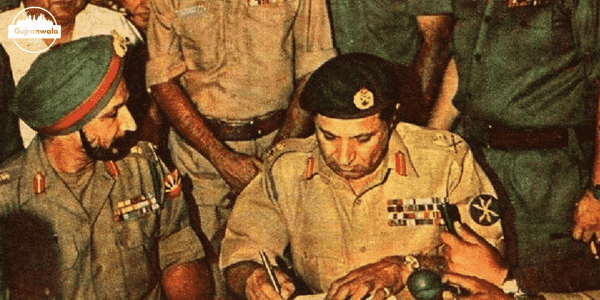
Masud continued his role as a flight instructor with the Air Force. He was also appointed in the Air AHQ as Director-General of Air Operations (DGAO) from 1966 to 1969. He was promoted to one star rank in 1969.
Zafar was appointed as the Air Officer Commanding of Dacca airbase East Pakistan in 1970. He suffered high-level local defections from his own staff when Group Captain A. K. Khandker and Wing Commander M. K. Bashar escaped to India in May 1971.
Masud refused an order to dispatch an air strike against armed civilians during Blitzkrieg Operation. He handed over the air command to Air Commodore Inamul Haque Khan of operation. Zafar came back to Pakistan to meet President Yahya all efforts have gone in vain.
He retired in July 1971and worked as a civilian flight instructor for the Rawalpindi Flying Club from 1974 onwards. On 7 October 2003, he died due to a cardiac arrest in PAF Hospital in Islamabad. He is the prominent name in the list of military persons from Gujranwala.
Air Commodore Service Analytics
| Commands | Wars/Battles |
|---|---|
| PAF Base Dacca | Indo-Pakistani War of 1965 |
| PAF Base Sargodha | |
| PAF Sherdils | |
| No. 11 Squadron Arrows |
Awards
| Hilal-e-Jurat | Sitara-e-Basalat |
| Order of Independence |

